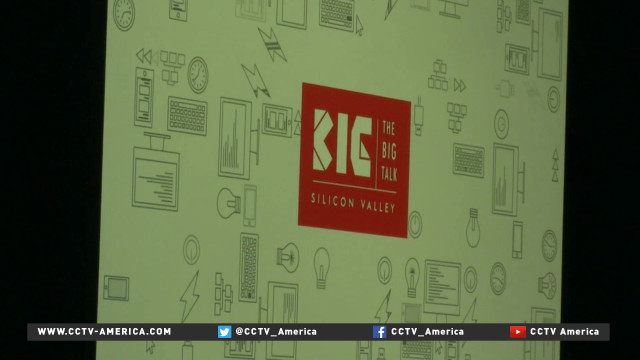Chinese Internet service provide Baidu hosted a “Big Talk” in Mountain View, California, where they shared their latest work with Chinese journalists. The company’s research center opened in Sunnyvale in May 2014, and is part of Baidu’s expansion in Silicon Valley. CCTV America’s Mark Niu reported this story from Mountain View.

Baidu holds 'big talk' summit in Silicon Valley to share latest research
Chinese Internet service provide Baidu hosted a "Big Talk" in Mountain View, California, where they shared their latest work with Chinese journalists. The company's research center opened in Sunnyvale in May 2014, and is part of Baidu's expansion in Silicon Valley. CCTV America's Mark Niu reported this story from Mountain View.At the Big Talk summit, Baidu finally revealed their work, including investing $300 million into an artificial intelligence lab that seeks to get computers to work more like the human brain, and development in online education and digital medicine.
Baidu brought in 120 tech journalists from China to learn about their ongoing research going. The Chinese Internet has held six such summits in China, but this is the first talk in the United States.
“Innovation capital of the World, it really is. A lot of things come out to here and change the world,” Wang He, senior manager of Baidu News said of Silicon Valley.
Baidu recently hired Stanford professor and former founder of Google’s Deep Learning Project Andrew Ng to lead research.
Ng said their artificial intelligence work at Baidu has already produced speech-recognition technology that makes less mistakes than competitors including Apple, Microsoft, Facebook, and Google.
He also displayed photos with captions in both English and Chinese and said: “I have a surprise for you. These captions were not written by a human, they were written by a computer.”
Ng also addressed recent concerns expressed by Stephen Hawking and Elon Musk that artificial intelligence could lead to doomsday scenarios.
“I certainly have no idea how to build a sentient, conscious robot, and I think it’s unfortunate that some of the oversimplified comparisons between neural networks and the brain are leading to this hype,” Ng said.
Ng said such hype distracts from artificial intelligence’s can re-train people to fit in to the new economy.
 CGTN America
CGTN America
